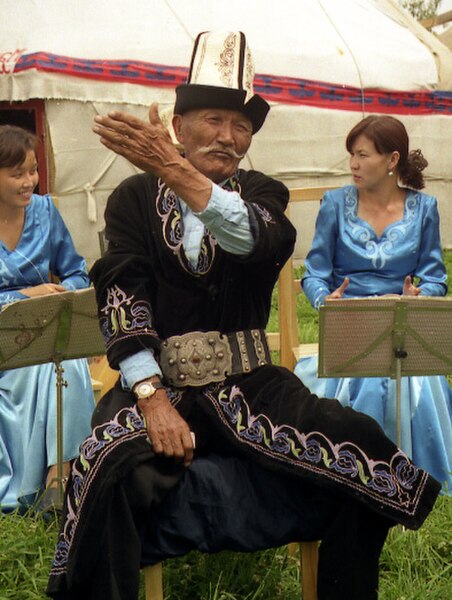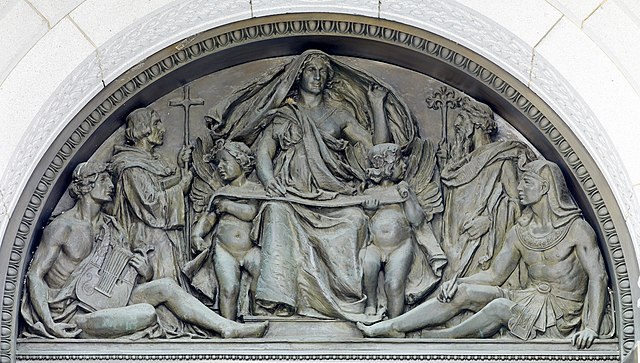Literature is any collection of written work, but it is also used more narrowly for writings specifically considered to be an art form, especially prose, fiction, drama, poetry, and including both print and digital writing. In recent centuries, the definition has expanded to include oral literature, much of which has been transcribed. Literature is a method of recording, preserving, and transmitting knowledge and entertainment, and can also have a social, psychological, spiritual, or political role.
A traditional Kyrgyz manaschi performing part of the Epic of Manas at a yurt camp in Karakol, Kyrgyzstan
Egyptian hieroglyphs with cartouches for the name "Ramesses II", from the Luxor Temple, New Kingdom
The intricate frontispiece of the Diamond Sutra from Tang dynasty China, the world's earliest dated printed book, AD 868 (British Library)
The Adventures of Pinocchio (1883) is a canonical piece of children's literature and one of the best-selling books ever published.
Writing is the act of creating a persistent representation of human language. A writing system uses a set of symbols and rules to encode aspects of spoken language, such as its lexicon and syntax. However, written language may take on characteristics distinct from those of any spoken language.
The Rosetta Stone, with writing using three different scripts, was instrumental in deciphering Egyptian hieroglyphs
Olin Levi Warner, tympanum representing Writing, above exterior of main entrance doors, Thomas Jefferson Building, Washington DC, 1896
Documents that are connected by hyperlinks
Globular envelope with a cluster of accountancy tokens, Uruk period, from Susa – Louvre Museum








